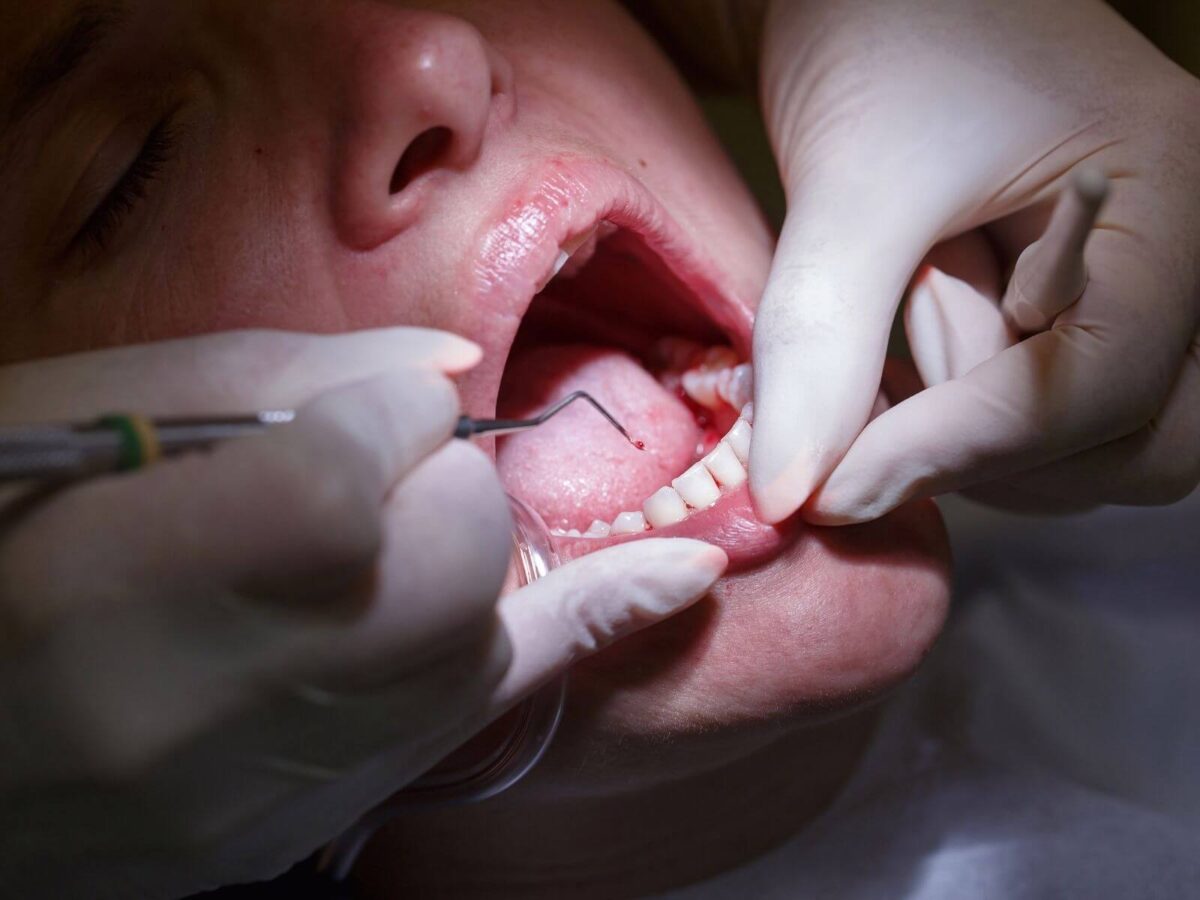Blog
Dental hygiene tips for healthy teeth & gums

How To Prevent Early Periodontal Disease From Getting Worse
Gum diseases are common and require immediate attention. Early-stage periodontal conditions are reversible to some extent, but if ignored, it can result in severe complications. With several symptoms, you can identify and determine if you have gingivitis and treat it accordingly.
This article will help you identify signs and prevent early-stage periodontal diseases. It will help you limit the disease’s spread and reverse its effects. You can protect your smile, appearance, and oral function promptly. Various preventive measures are also available to stop the disease’s progress; let us learn about those.
Periodontal Diseases
People with bad oral habits can often get infections, leading to periodontal conditions. Early-stage periodontal disease is reversible to some extent if diagnosed early and treated immediately. It is mostly caused by poor oral care and hygiene. This also leads to receding gums and bone loss, resulting in tooth loss.
Proper brushing techniques and oral care can help prevent early-stage gum diseases. You might absorb symptoms such as bleeding, soreness, pain, gum recession, or bad breath, which are early symptoms of periodontal condition. Here are the four stages of periodontal conditions; let us learn about them in detail:
Gingivitis
The early-stage periodontal condition is called gingivitis. When you brush or floss, your gums might bleed or cause discomfort. These are signs of gum-related issues.
Gingivitis is the initial stage of periodontitis and might not show severe symptoms such as receding gums or bone loss. The disease is reversible during this stage but requires immediate medical attention for proper treatment.
Mild Periodontitis
If ignored during the gingivits stage, the disease progresses to mild periodontitis. In this stage, bacteria seep into the gums and attack the tooth bone. The gums recede, bleed, and get infected. You might start having pain and discomfort and observe deep pockets beside your gums. Food particles might get trapped in these pockets and are difficult to clean.
Moderate Periodontitis
When left untreated, the infection increases and affects the soft tissue around your teeth. This impacts the tooth position, and ligaments lose hold of the tooth. Strong bad breath and pus around the gum line are a few symptoms you can observe during this stage. More pain develops as the disease advances to the next stage. Bacteria starts affecting the neighboring teeth and tissue around your infected tooth.
Advanced Periodontitis
Bone loss continues with diseases reaching the advanced stage of periodontitis. The tooth eventually falls out and the infection spreads. The pain and discomfort can be managed, but the missing teeth require treatment to restore mouth function.
How to Prevent Periodontal Diseases?
Prevention of related diseases is quite possible with modern techniques. Your oral care is your responsibility, depending on how concerned you are about your oral hygiene. You can maintain a clean mouth and prevent multiple oral conditions with effective measures. Here are some essential tips to follow to prevent early-stage periodontal diseases:
Dental Examination
The most essential step to prevent gum diseases is regular dental visitations. You must schedule an appointment every six months with your dentist to check and diagnose your oral health.
With regular visits, you can identify any potential gum conditions or signs you must be concerned about and treat them promptly.
Diet
It is essential to have a balanced diet that protects your mouth from cavities. With proper nutrients, you fight infection and inflammation better. It can minimize the chances of infection in your mouth.
Reduce Stress
Stress is also a leading cause of gum-related problems. You must work your way through stress and try to minimize it. If you are involved in stressful situations, you must take better care of your oral health and visit dentists more frequently. This will help you identify and treat gingivitis more effectively.
Is Gum Disease Reversible During Early Stage?
Gum diseases are reversible during early stages with effective oral care techniques. Your dentist might identify periodontal symptoms and provide a professional cleaning session. This will remove all plaque and tartar buildup and food particles that might attract more bacteria. With professional cleaning, your gums will be restored to healthy conditions with time.
If diagnosed early, the conditions of your gums can be reversed, but if periodontal disease reaches its advanced stage, it cannot be reversed. Your dentist might treat you for missing teeth and start medication to reduce infection and inflammation of the gums.
Final Thoughts
Preventing periodontal conditions is essential to protect your oral health. If your gums are infected, the condition is reversible till the gingivitis stage. This is why dentists recommend visitations every six months and professional cleaning sessions every once in a while.
Properly cleaning and removing food particles can prevent periodontal diseases and protect gums from infection. You can contact our experts at Tidwell Dentist TX to consult about your gum health and identify potential threats.


